US Figure Skating allowed allegedly abusive coach Richard Callaghan to stay on the ice. He abused again: Lawsuit
Adam Schmidt is the second former figure skater to accuse Callaghan of abuse.
A former competitive figure skater says that he was sexually abused by once-celebrated Olympic coach Richard Callaghan in the years after the sport’s national governing body dismissed complaints of sexual misconduct against him, according to a lawsuit filed this week.
Adam Schmidt, formerly Baadani, now 34, filed a lawsuit in San Diego Superior Court against U.S. Figure Skating, Onyx Ice Arena, and Callaghan — identified as Doe 1, Doe 2 and Doe 3 in the complaint, per California law — and others, alleging that he suffered “numerous sexual assaults” by Callaghan while training under him as a teenager in Michigan from about 1999 to 2001 and one specific instance of abuse at the 2001 Masters of Figure Skating competition in California after leaving Callaghan’s stable of skaters.
Craig Maurizi, another former skater turned Olympic coach, had accused Callaghan of sexually abusing him when he was a young skater from about 1977 to 1986 in a grievance filed with the federation in 1999 that included statements from several other people who had either allegedly suffered or witnessed sexual misconduct by Callaghan.
Maurizi told his story to several major media outlets at the time, including ABC News, but Callaghan denied Maurizi’s claims, and the federation dismissed the grievance without full consideration because skating bylaws stipulated that alleged misconduct must be reported within 60 days. Callaghan — one of the world’s top coaches at the time whose list of students included some of the sport’s biggest names — was allowed to continue coaching.
That decision, Schmidt’s complaint says, allowed Callaghan’s alleged abuse of Schmidt to “continue unabated,” resulting in what the complaint describes as a litany of trauma-related psychological damages, including “anxiety, depression, fear, grief and stress.”
“[U.S. Figure Skating], knowing full well of the allegations of sexual misconduct, failed to investigate, failed to warn [Schmidt] of these prior bad acts, and did nothing to inhibit [Callaghan’s] access to minor children under his tutelage or those who were present at the events he attended,” the complaint said. “Despite this litany of sexual abuse and misconduct complaints made against [Callaghan], [Callaghan] remained in good-standing with [U.S. Figure Skating] until 2018.”
Schmidt, who is being represented by the prominent sexual abuse attorneys Manly, Stewart & Finaldi, told ABC News that he only became aware that Callaghan had been previously accused of sexual abuse when Maurizi’s claims received renewed media attention last year after dozens of elite gymnasts accused Team USA doctor Larry Nassar of serially abusing them under the guise of medical treatment.
“How did this happen? Why 20 years ago did everyone know and do nothing?” Schmidt said. “Because if they would have done something then … I never would have been abused.”
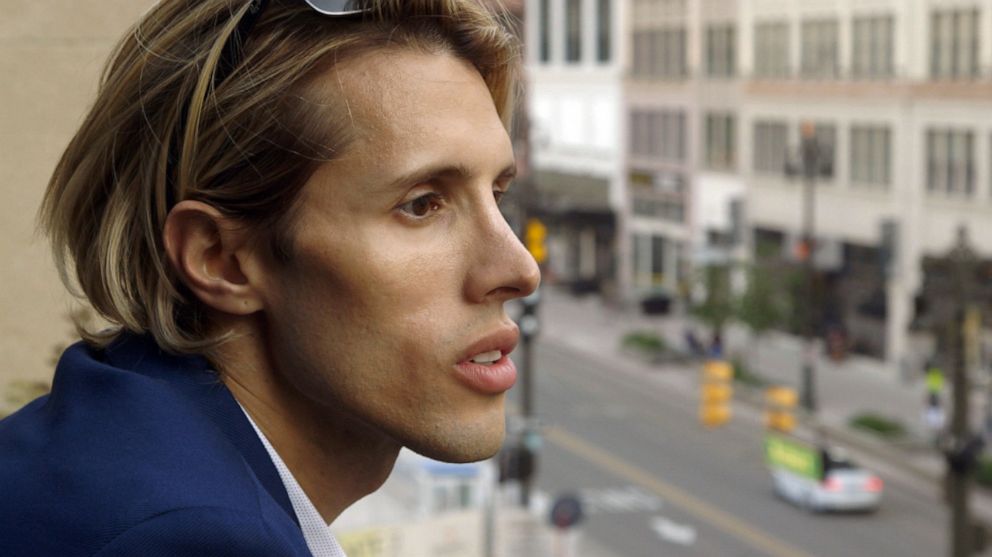
Callaghan, now 73, was actively coaching in Florida until last year, when Maurizi refiled his grievance against him with the U.S. Center for SafeSport, the U.S. Olympic Committee’s sexual misconduct watchdog. U.S. Figure Skating has temporarily suspended Callaghan while SafeSport completes its investigation, but more than 18 months later, a final determination on the case has yet to be made.
Dean Groulx, a Michigan-based attorney representing Callaghan, sent a brief statement to ABC News dismissing the new claims from Schmidt.
“Mr. Schmidt's allegations are 100% false,” Groulx said. “There is no truth to them.”
The complaint is sharply critical of the policies and procedures that led to U.S. Figure Skating’s dismissal of Maurizi’s initial complaint – specifically the requirement that a grievance be submitted within 60 days of the alleged misconduct – saying that the system in place at the time “made it nearly impossible for sexual abuse claimants to bring effective complaints forward against perpetrators.”
In response to questions from ABC News, U.S. Figure Skating issued a statement acknowledging that “Maurizi’s case prompted U.S. Figure Skating to examine its rules and procedures in the area of Athlete Safety” and insisting that the federation “has acted promptly on every incident reported to it of suspected sexual abuse or misconduct since the new policy was enacted in May 2000.”
“U.S. Figure Skating supports all victims of sexual abuse and encourages those who have been abused or suspect abuse to report it to local law enforcement, the U.S. Center for SafeSport and U.S. Figure Skating,” the statement reads. “U.S. Figure Skating has no record of receiving a report regarding the allegations brought forth to you by Mr. Schmidt. No allegations against Mr. Callaghan were reported prior to 1999. U.S. Figure Skating records reflect that Mr. Maurizi remains the only person to have reported allegations against Richard Callaghan to U.S. Figure Skating.”
The U.S. Center for SafeSport, which now has exclusive jurisdiction over allegations of sexual misconduct reported to national sports governing bodies, does not time bar any claims.
Following the publication of this report, U.S. Figure Skating sent a letter to its members calling “recent news reports” about allegations of sexual abuse and misconduct in the sport “heartbreaking” and reiterating its commitment to provide a “safe and healthy environment” for its athletes.
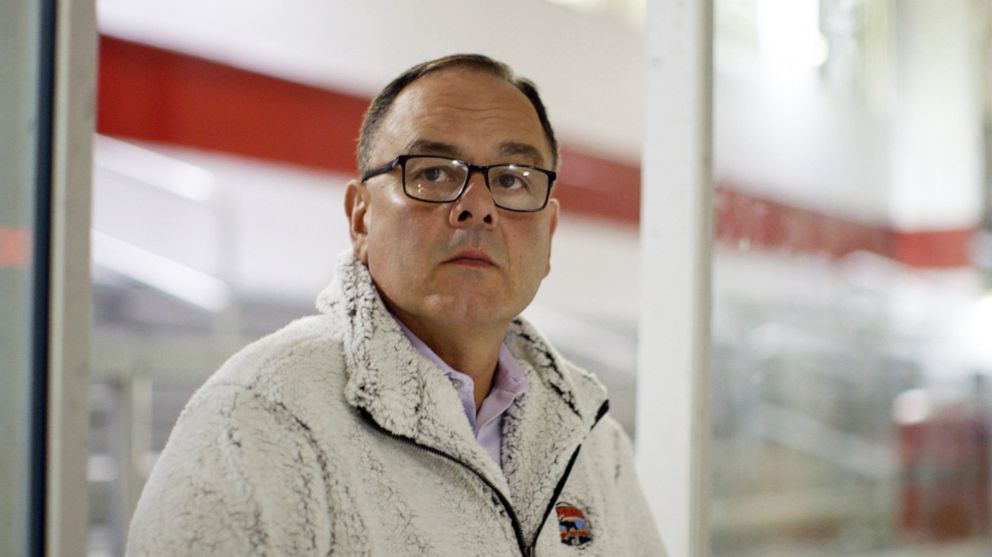
The complaint also alleges that Onyx Ice Arena in Rochester, Mich., where Schmidt says the majority of the alleged abuse took place in the years after Maurizi’s allegations were made public in 1999, “permitted [Callaghan], whom it had known had been accused of sexual abuse, to continue to work with children” at the facility.
Tom Anastos, the owner of the Onyx Ice Arena, told ABC News that he had not been made aware of those allegations, having relied upon the then-director of skating to manage that portion of the business. Callaghan was never an employee of the arena, he said, and merely purchased ice time to train his skaters.
However, Anastos said, “If we had received a complaint of any sort, we would have addressed it.”
According to Schmidt, Callaghan’s alleged abuse began while he was at the Detroit Skating Club and escalated at Onyx Ice Arena, starting with inappropriate touching on the ice that would continue in Callaghan’s office.
“The visits to his office after my lessons on the ice started to become a lot more frequent,” Schmidt said. “And then they started to become a lot more graphic.”
“He would start, you know, putting his hands under my clothes and adjusting my hips and working on checkout positions, but now he was, like, nude from, like, the waist down,” he added.” And that's when it was, I think, really inappropriate, looking back on it now. But again, I didn't understand it at the time because I was just so obsessed with my career and wanting to please him. … It was definitely more than just inappropriate touching, and we'll leave it there.”
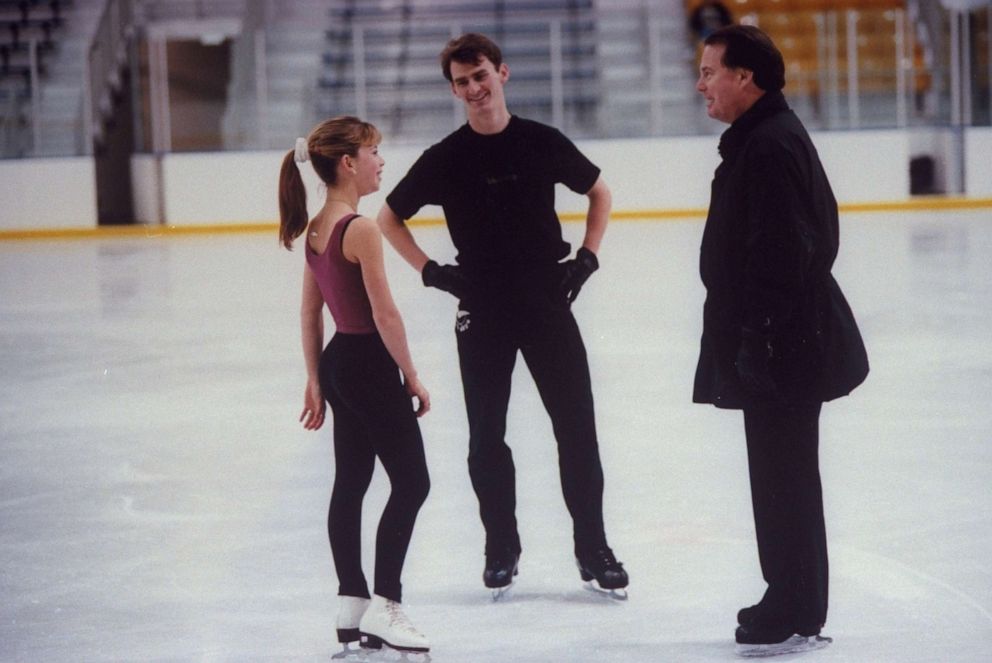
Schmidt never reported his alleged abuse to the federation, and he did not explicitly tell any of his family or friends until recently.
“It was only in, or around, January of 2017, after [Schmidt] suffered a psychological breakdown and was hospitalized,” the lawsuit notes, “that [he] first disclosed his sexual abuse at the hands of [Callaghan] to a mental health professional.” That mental health professional, who has continued to serve as Schmidt’s therapist, confirmed that account to ABC News.
Schmidt’s allegations add to what appear to be growing concerns among those charged with oversight of sports governing bodies about the extent of the sexual abuse problem in figure skating.
Following the death of John Coughlin, a coach and commentator who took his own life earlier this year after it was revealed that he had been temporarily suspended from the federation while SafeSport investigated allegations of sexual misconduct made against him, the U.S. Center for SafeSport issued a statement raising the alarm about “a culture” in the figure skating that fosters and tolerates sexual abuse.
“In the course of the Center’s work on this matter, and other Figure Skating matters, it is evident that there was/is a culture in figure skating that allowed grooming and abuse to go unchecked for too long,” the statement reads. “The issues in this sport are similar to those the Center has seen in many others and cut across a wide population. This cannot be allowed to continue.”
U.S. Figure Skating, which has been led by executive director David Raith since 2005, disputed that assessment even as it reaffirmed its commitment to SafeSport’s mission.
“U.S. Figure Skating strongly refutes the U.S. Center for SafeSport’s March 4 statement but shares the Center’s mission to make athlete well-being the centerpiece of American sports culture,” the statement reads. “With minors comprising the majority of U.S. Figure Skating membership, athlete safety is paramount. U.S. Figure Skating believes the best practices for protecting minor athletes from abuse are enforcing athlete protection policies; education and awareness training; requiring background checks for people who have regular contact with athletes; and mandating that all members report alleged and suspected child abuse to local law enforcement, the U.S. Center for SafeSport and U.S. Figure Skating.”
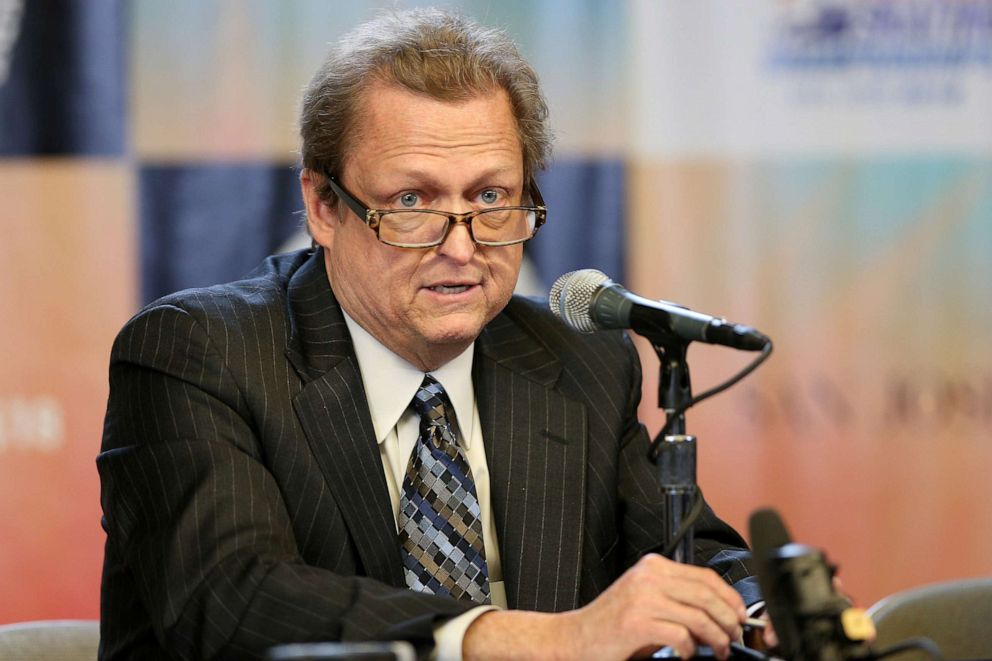
ABC News reviewed U.S. Figure Skating’s so-called “banned list,” which identifies dozens of individuals “banned or suspended from U.S. Figure Skating membership” for various forms of alleged misconduct. U.S. Figure Skating has acknowledged permanent bans against at least 16 individuals for sexual misconduct, most of them coaches accused of abusing underage skaters. The cases span decades, reaching back to before a reporting requirement was adopted by the federation in 2000 and including a pair of cases that resulted in bans earlier this year.
The list, while publicly available on the federation’s website, is otherwise opaque and provides few details about the nature of the misconduct. In order to identify coaches or other individuals banned for alleged sexual misconduct, ABC News had to comb for references to SafeSport and General Rule 1.03, which prohibits sexual harassment or misconduct by its members, and then cross-reference with court records and media reports. In more than a dozen cases, ABC News was unable to determine the nature of the offending conduct.
U.S. Figure Skating declined to offer any further clarification to ABC News.
“Information posted on the U.S. Figure Skating Grievance web page is in accordance with U.S. Figure Skating bylaws and rules,” the statement reads.
Several of the cases that resulted in permanent bans appear to share a common denominator with the series of circumstances that appear to have led to Schmidt’s alleged abuse. In an interview with ABC News, Schmidt described how he grew increasingly isolated from both his family and the wider world as he entered the upper echelons of the sport at a relatively young age, even leaving his parents in New York to live with his grandmother in Michigan so that he could train with Callaghan.
“I didn't realize it then, but looking back on it, I was living in a bubble, you know, that was just my sport,” Schmidt said. “I think we all were. I didn't go to school. I was home schooled and I would tutor in the facility. … I did nothing else. … And I think that's really important for people to understand that I didn't even start to understand what had happened to me until I got out of that bubble and I left the sport in 2014 and I went into the, like, real world.”
According to Philip Hersh, a longtime sportswriter for the Chicago Tribune who specialized in coverage of the Olympic Games, that isolation – from family, friends and, indeed, the wider world – is “a critical part of the story,” often creating a void a skater’s coach is uniquely positioned to fill.
“In figure skating, as in other sports, a number of coaches develop, for lack of a better word, a Svengali relationship with the athletes that they're working with,” Hersh said. “If you put all your faith and all of your expectations in a coach, sometimes you will take actions that the coach requests that might not be in your best interest.”
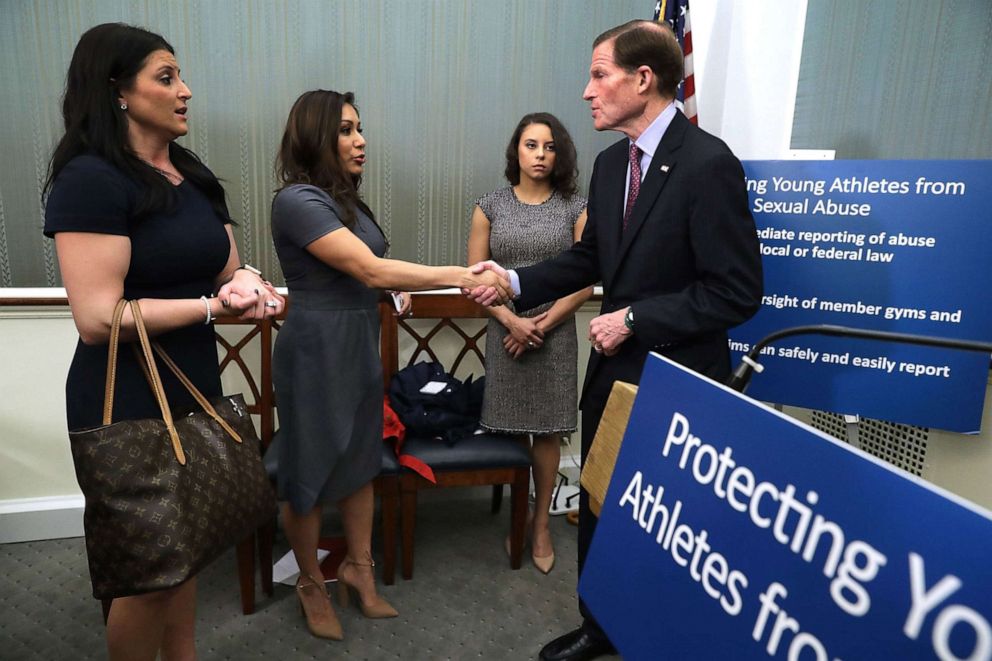
U.S. Figure Skating is far from the only national governing body grappling with the issue.
In July, Senators Jerry Moran, a Republican from Kansas, and Richard Blumenthal, a Democrat from Connecticut – leaders of a Senate subcommittee charged with oversight of the U.S. Olympic Committee and its associated sports federations -- released the findings of an investigation that had started with the Nassar case but quickly expanded into other sports. The report notes that Maurizi testified before the subcommittee and investigators spoke to survivors from several different sports, including figure skating, who preferred not be publicly identified.
“Even as Nassar’s case captured the headlines, it was hardly the only case of unchecked criminal behavior in amateur Olympic sports,” the report said. “His case underscored serious allegations of sexual abuse made in USA Taekwondo, USA Swimming, U.S. Figure Skating, and other sports—and the failure on the part of those [national governing bodies] to ensure the health and safety of their athletes.”
After many years as a touring professional and later a figure skating coach himself, Schmidt retired from the sport. He spent several years adrift, he said, but is now focused on his recovery. He is speaking out now, he said, because he feels that U.S. Figure Skating has failed to adequately address the problem.
“I am demanding that we have an independent investigation into all of these allegations,” Schmidt said. “I can't sit back and allow that to happen without people hearing what I have to say and really thinking twice about doing that for the safety of their children.”
If you have information about these allegations or similar allegations, please contact Pete Madden (pete.a.madden@abc.com) or Cho Park (cho.park@abc.com).
This report was featured in the Monday, Aug. 12, 2019 episode of "Start Here", ABC News' daily news podcast.
Editor’s note: This report has been updated following the release of a new letter from U.S. Figure Skating in response to “recent news reports” about allegations of sexual abuse and misconduct in figure skating.
Update: On June 15, 2020, Schmidt and the Onyx Ice Arena agreed to the terms of a settlement agreement in which Onyx agreed to pay Schmidt $1.75 million.
ABC News' Jinsol Jung contributed to this report.



